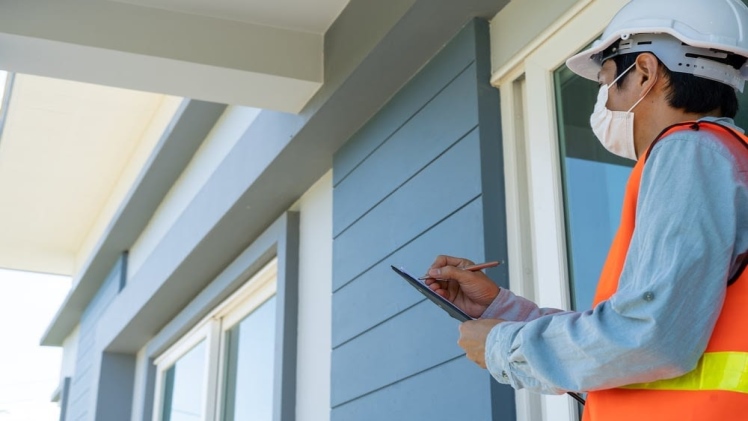Getting a home inspected is one of the most crucial things you can do when purchasing a home. It’s an essential purchase step, enabling you to bargain for a reduced property price.
A house’s physical structure, systems, and components will all be examined by a home inspector to ensure everything is in working order. Additionally, they will look for future problems like pest infestations.
Look at the Report
Before signing the contract to purchase a home, you must understand what you are getting into. You are granted the opportunity to perform house inspections from experts like Davidson Homes.
The home inspector will examine the major systems in the home and report on their condition. These include the roof, HVAC system, and electrical and plumbing systems. In addition, the inspector will look for termites and other wood-destroying organisms.
You should always be present and follow them around the house when the inspector is doing the inspection. It will help you understand the issues better and allow you to ask questions if necessary.
After the inspection, you should receive a report containing pictures of any problems found during the inspection. It will help you and your agent prepare for negotiations.
If the report uncovers any significant problems, consider negotiating with the seller to make the repairs or lower the sale price to cover the costs. Both parties will benefit from the scenario.
It’s also a good idea to get additional inspections on items that the inspector can’t see, such as wells and septic tanks. These can be expensive and a potential problem, so you should always have them checked out before buying a home.
Ask Questions
A home inspection is a valuable tool for a potential homeowner. It provides a detailed account of the condition of a home and recommends specialized contractors where necessary.
Asking questions is one of the best methods to guarantee that your home inspection goes successfully. A good inspector will be happy to explain your concerns in detail, so don’t hesitate to ask.
Please also ask about any notes they have made during the inspection that may indicate a problem with the home. These notes could be as simple as a crack in the foundation or mice droppings.
Another thing to consider is whether any issues with the electrical system or plumbing require immediate attention. Most newer homes don’t need significant upgrades, but older ones with outdated wiring and cast iron pipes might have to be replaced.
These questions are essential to have answered and will help you determine whether or not the house is right for you.
Buying a home is one of the most significant investments you’ll ever make, and a professional home inspection is an essential part of the process. So make sure you hire a professional inspector you trust with your investment.
Make Your Offer
If you’re buying a home, it’s a good idea to have your real estate agent inspect the property before making an offer. It will help you determine if the house is right for you and give you a better idea of its value.
After your inspection, your inspector should send you a report that gives you a detailed picture of the property. This report should include information about all major systems of the home, including the roof, foundation, electrical and plumbing, and heating and cooling system.
Your inspector should highlight potential problems, such as structural damage or environmental hazards. These issues are a big concern for buyers, as they could cost thousands of dollars to repair.
You can renegotiate the price or request that the seller foot some of the repair costs, as many sellers are unwilling to make these repairs. It will usually result in a monetary credit on your offer.
You may also add a contingency to your contract that allows you to cancel the sale or negotiate repairs after your home inspection. This way, you can walk away from the deal if your inspector uncovers expensive issues beyond your budget or if you need help to afford the repairs celebritylifecycle.
If you add a contingency, be sure to include it in writing and clearly state that the offer will not change based on the results of your inspection. You might even want to waive the contingency if you still determine what your check will reveal.
Negotiate
Whether buying a new home or trying to sell your current one, an inspection is an essential part of the process. They reveal hidden issues that could cost you money and provide a negotiating tool to help you get a better deal.
While some mortgage lenders don’t require a home inspection, it’s in your best interest to have one done before you sign a contract. It’s also a great way to protect yourself from unexpected repairs.
If you discover significant problems, you can use these as leverage to negotiate the price down or even ask the seller to cover your closing costs. But before you start negotiating, it’s essential to consider your budget and how much you’re willing to spend on a house web series review.
When deciding which inspector to work with, pick someone with extensive experience in the area you’re looking in. Because you’ll be spending a lot of time with them for the process, you must trust their judgment.
If you need help finding a good home inspector, ask your real estate agent for recommendations or speak to friends and family who have bought and sold homes recently. Getting a referral can save you a lot of time and worry starwikibio.

